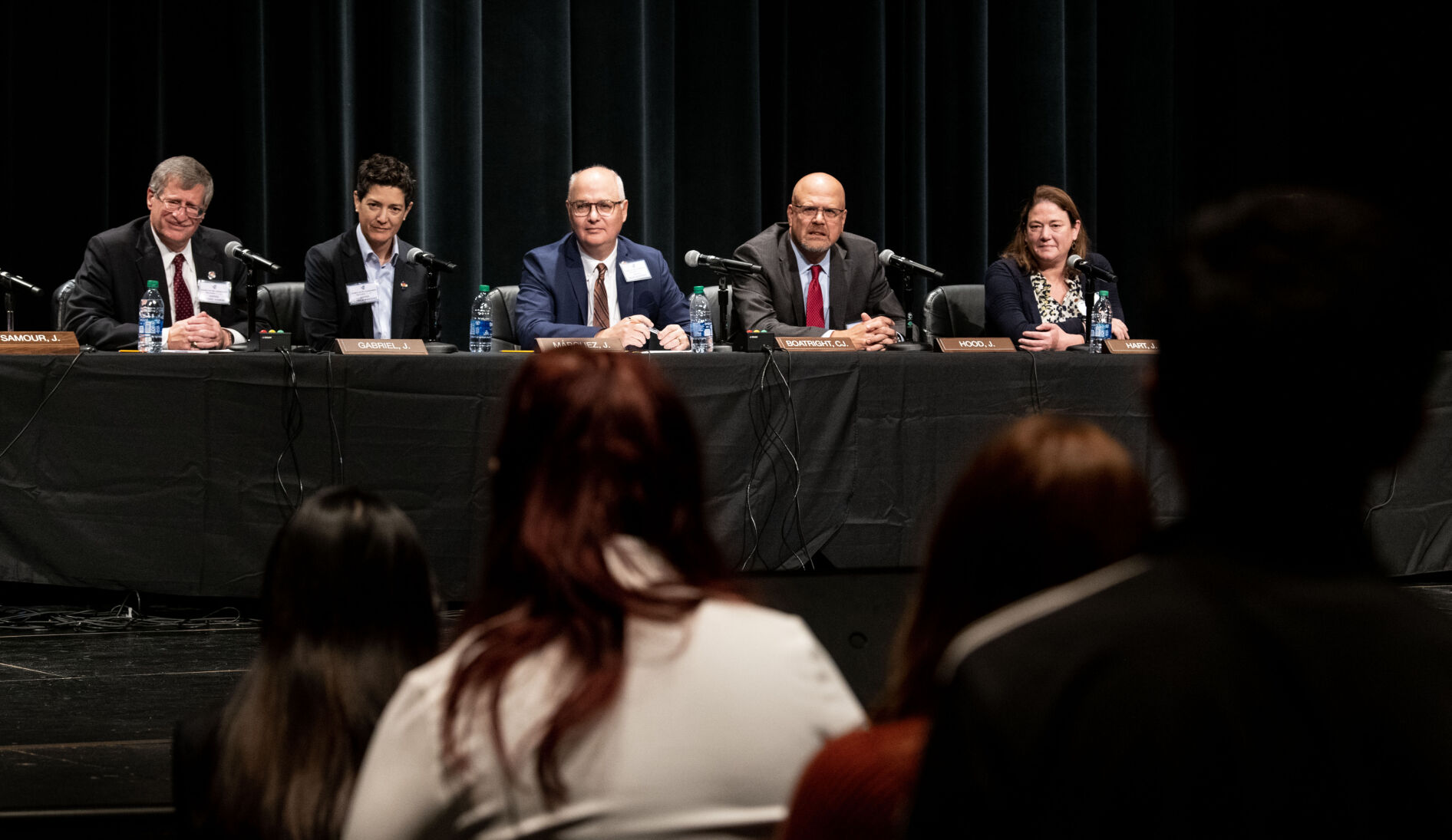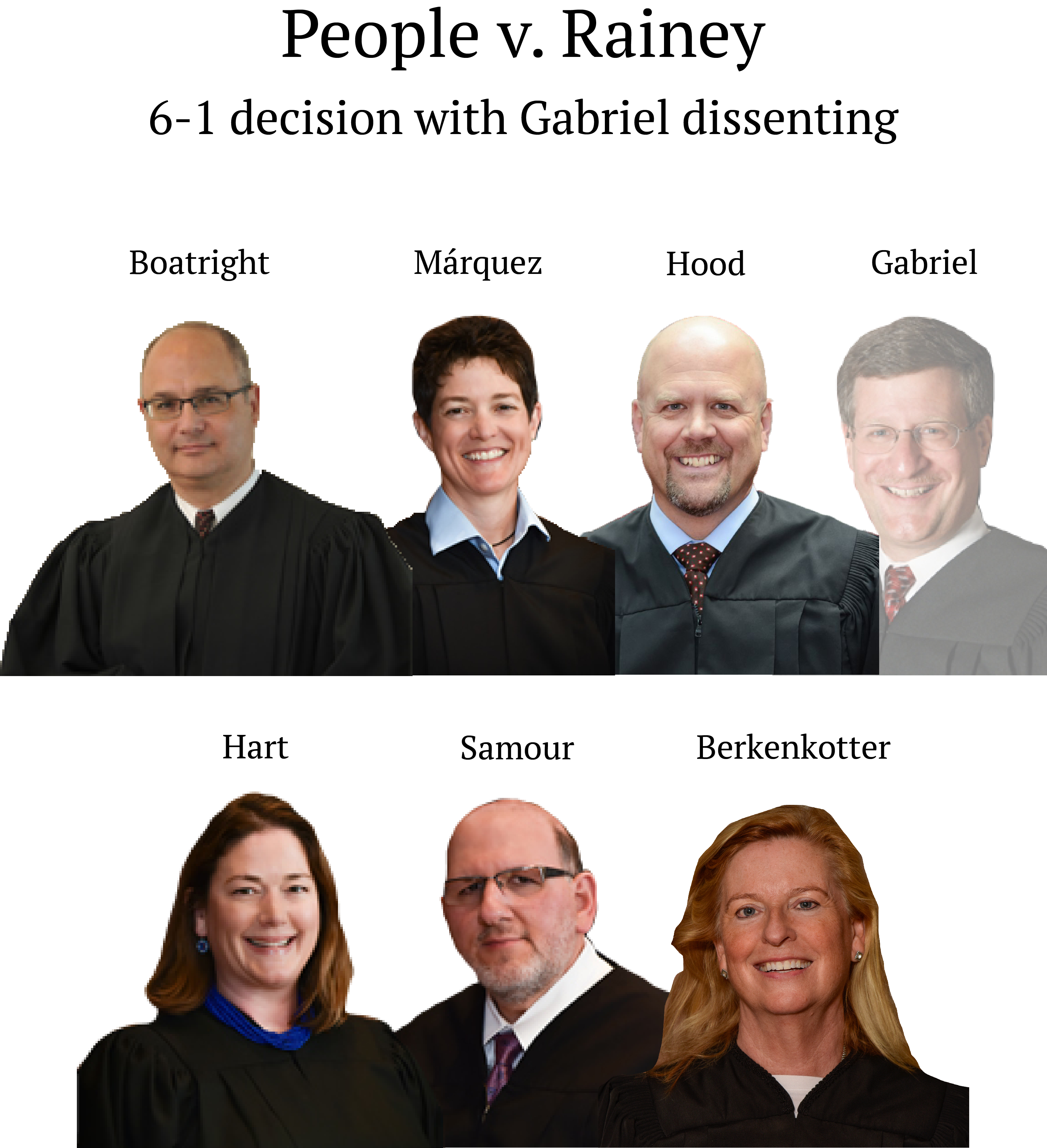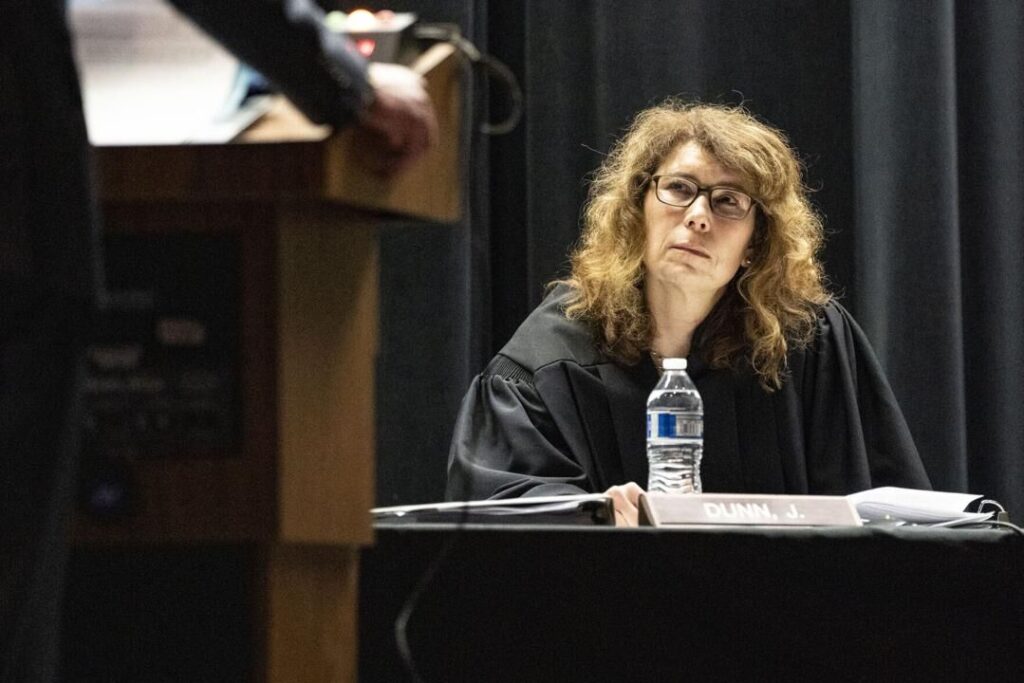Colorado Supreme Court rules poor defendants have no right to keep assigned lawyer

There is no constitutional right for indigent criminal defendants to go to trial with their preferred public defender, even though defendants who are wealthy enough to hire an attorney do enjoy that ability, a majority of the Colorado Supreme Court ruled on Monday.
In a pair of 6-1 decisions, the Supreme Court determined that poor defendants do have an “interest” in having a particular appointed attorney represent them through trial, but the Sixth Amendment’s right to counsel does not prevent judges from forcing a last-minute change of public defenders – with as little as 72 hours’ notice.
“The United States Supreme Court has not recognized such a right, and we decline to do so here,” wrote Justice Melissa Hart in the court’s April 10 opinion. Because “defendants who receive court-appointed counsel do not have a right to choose their attorneys, they do not have a constitutional right to continued representation by any particular appointed attorney.”
Writing in dissent, Justice Richard L. Gabriel accused the majority of disregarding the court’s own prior cases that supported the existence of a right to continued representation. He also blasted his colleagues for stratifying legal representation along wealth lines, and for suggesting that any given public defender is interchangeable with another.
“Because I can conceive of no sound basis for departing from long-settled precedent, endorsing such a two-tiered system of justice, or sending so demeaning a message to an entire class of dedicated public servants, I respectfully dissent,” Gabriel wrote.

Some criminal defense attorneys likewise criticized the majority’s decision for minimizing the lawyer-client relationship and case-specific expertise, which weigh in favor of letting appointed attorneys see their cases through to trial.
“I am concerned about this ruling violating a defendant’s right to equal protection – do we really want the rules to be different for those able to afford counsel (an increasingly small number of people charged with serious offenses) than for those who are indigent?” said Mary Claire Mulligan, a defense attorney in Boulder. “Shouldn’t we all have the same constitutional rights regardless of our wealth status?”

The Colorado District Attorneys’ Council, which represents the state’s prosecutors, did not immediately respond to a request for comment.
The Sixth Amendment guarantees criminal defendants the right to “assistance of counsel.” The U.S. Supreme Court has interpreted the provision to include appointed counsel for poor defendants, effective representation for all defendants and the ability of defendants to hire their chosen attorney if they have the means to do so. Those guarantees, however, do not appear in the text of the amendment.
Two appeals reached the Colorado Supreme Court that questioned whether the Sixth Amendment also gives indigent defendants the right to continue with the public defender they are assigned, even though they had no ability to choose their attorney in the first place.
In People v. Rainey, which arose from El Paso County, and People v. Davis out of Gilpin County, both defendants asked the trial judge to postpone their trial to accommodate their assigned public defenders’ scheduling conflicts. The judges declined to do so in both instances, requiring new lawyers to substitute on short notice.
In the case of Robert James Rainey, District Court Judge Robin Chittum postponed the 2017 trial twice on her own and twice at the request of prosecutors. But when Rainey’s public defender asked for his first postponement because he would be out of town for the rescheduled trial, Chittum refused. She explained the case was “straightforward” and she would have trouble finding another time to hold the trial.
Rainey’s substitute counsel had only two weekend days to prepare for the Monday trial. A jury found Rainey guilty of kidnapping and criminal mischief.
A three-judge panel for the state’s Court of Appeals, relying on prior decisions from inside and outside of Colorado, believed poor defendants have the right to continued legal representation in addition to competent representation.
“And the right to continued representation means that an indigent defendant has a right to proceed with his specific appointed lawyer, not just any appointed lawyer from the public defender’s office,” wrote Judge Elizabeth L. Harris in the March 2021 opinion.
The Colorado Criminal Defense Bar, the National Association for Public Defense and the Office of Alternate Defense Counsel wrote to the Supreme Court in support of the appellate panel’s decision, arguing the justices should not give trial judges license to replace a defendant’s “trusted and well-prepared attorney with any warm body.”
But the Supreme Court was unconvinced. Hart, in the majority opinion, explained the right to continued representation stems from the right to choose one’s attorney in the first place, which does not exist for indigent defendants. Further, if a defendant wishes to keep his attorney, he may do so “subject to balancing against the needs of a fair and efficient judicial system.”
Hart claimed the decision does not deny poor defendants “any meaningful protection enjoyed by a defendant who hires counsel.”
Gabriel argued in dissent that the logistical problems that would arise from letting indigent defendants choose their lawyer in the first place do not apply when defendants seek only to continue to trial with their assigned attorney. He was also dubious of the majority’s choice to label continued representation as merely an “interest,” rather than a “right.”
“First and foremost, the majority enshrines into constitutional law the notion that people of means have a right to the continuity of counsel but indigent defendants do not,” Gabriel wrote. “I, however, can discern no basis for making such a distinction, which, to me, flies in the face of the fundamental principle of equal justice under the law.”
He indicated he would have upheld the Court of Appeals’ decision and found the trial judge abused her discretion in denying Rainey a postponement. Both sets of justices echoed their same conclusions in Davis, the second appeal.














